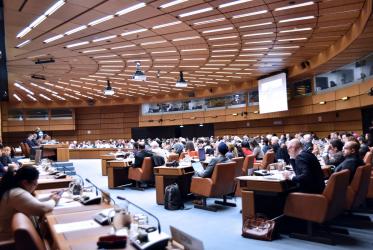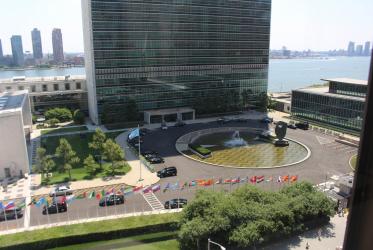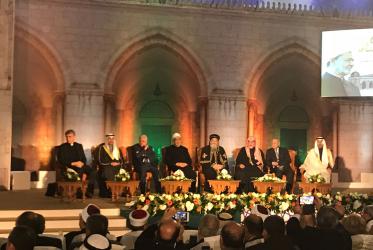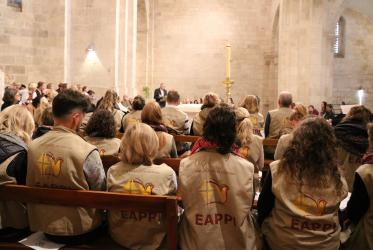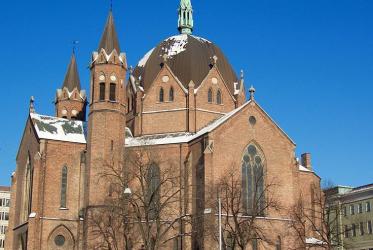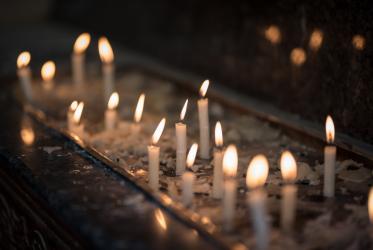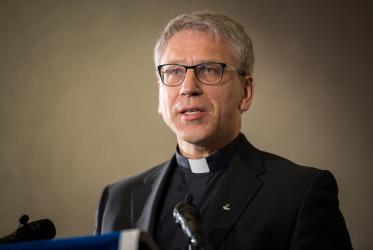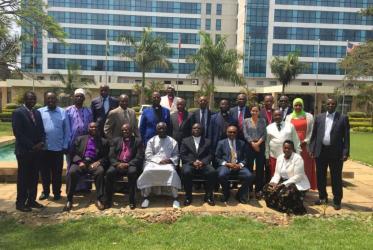Displaying 141 - 160 of 437
14 February 2018
WCC to co-host public event on migration and displacement at UN
17 January 2018
WCC says future of Jerusalem must be a shared one
17 January 2018
WCC delegation visits China
04 January 2018
Trying to do good for the world
18 December 2017
Peacemaking “a great and compelling life task”
09 December 2017
Norway to host prayers for peace on Nobel Prize weekend
05 December 2017
In Nigeria, WCC workshops focus on human rights
04 December 2017
WCC condemns attack on mosque in Egypt
25 November 2017
Tveit: “We are called to embrace the gifts of the others”
07 November 2017
